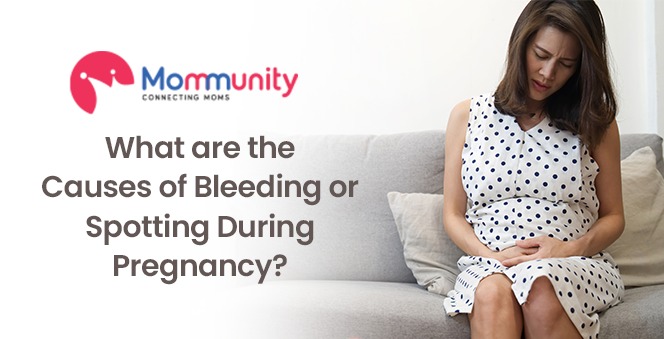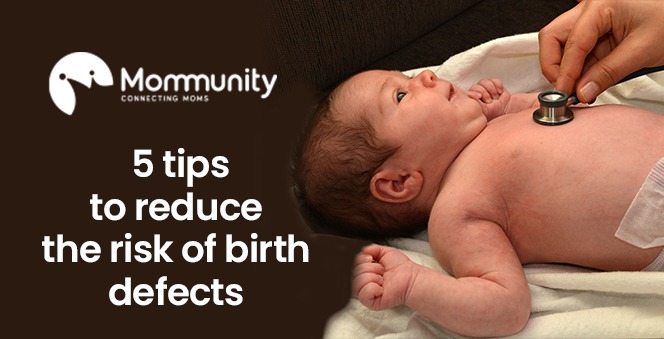During pregnancy, vaginal bleeding and spotting are normal. During their pregnancy, up to one out of every four pregnant women (up to 25%) can experience some bleeding or spotting.
Pregnancy bleeding and spotting aren’t necessarily indicative of a problem, but they can indicate a miscarriage or other significant difficulties. A miscarriage occurs when a baby dies in the womb before the 20th week of pregnancy. If you have any bleeding or spotting, contact your doctor right away, even if it stops. It could be nothing serious, but your healthcare provider needs to figure out what’s causing it. We’ll go over the many causes of bleeding or spotting during pregnancy in this Mommunity article.
WHAT’S THE DIFFERENCE BETWEEN BLEEDING AND SPOTTING?
Bleeding or spotting can occur at any point throughout pregnancy, from conception to delivery. Light bleeding is referred to as spotting. When you have a few drops of blood on your underpants, this happens. The spotting is so light that it wouldn’t even cover a pantyliner. When your blood flow is heavy enough that you need a panty liner or pad to keep the blood from ruining your underwear and clothes, you’re bleeding.
WHAT SHOULD YOU DO IF YOU’RE PREGNANT AND HAVE BLEEDING OR SPOTTING?
If you experience any type of bleeding while pregnant, contact your doctor and follow these steps:
- Keep track of how much bleeding you’re having if it gets worse or better and how many pads you’re using.
- Examine the blood’s appearance. It’s possible that your healthcare professional will want to know. It comes in a variety of colours, including brown, black, and bright red.
- If you’re bleeding, don’t use a tampon, douche, or have intercourse.
Call your healthcare provider straight away or go to the emergency department if you have:
- Heavy bleeding
- Painful or cramping bleeding
- Dizziness and bleeding
- Pain in your stomach or pelvis
WHAT CAUSES EARLY PREGNANCY BLEEDING OR SPOTTING?
Early in pregnancy, some spotting or bleeding is usual. In the first trimester, bleeding or spotting may not be an issue. It can be brought on by:
- Having sex
- Being infected
- Implantation. When a fertilised egg (embryo) adheres to the uterus (womb’s) lining and starts to grow.
- Hormone fluctuations. Hormones are natural molecules produced by the human body.
- Changes in the shape of your cervix. The uterus, which sits at the apex of the vagina, is opened by the cervix.
- Certain types of prenatal testing, such as amniocentesis and chorionic villus sampling (CVS). These are tests that are done to see if your baby has any genetic problems.
- Genetic abnormalities are changes in a person’s genes handed down from their parents to their children. A baby’s health may be jeopardised as a result of these genetic alterations.
- Smoking-related problems. If you smoke, it’s advisable to quit before or after you find out you’re expecting.Bleeding or spotting during the first trimester can indicate a major condition, such as:
- Miscarriage. Almost all women who miscarry experience pre-miscarriage bleeding or spotting.
- The occurrence of an ectopic pregnancy. This occurs when a fertilised egg leaves the uterus and begins to grow outside of it. An ectopic pregnancy will not result in a baby being born. It can produce major, life-threatening complications for a pregnant woman.
- Molar pregnancy. This occurs when, instead of a baby, a mass of tissue grows inside the womb. Molar pregnancy is a rare occurrence.
WHAT CAUSES LATER PREGNANCY BLEEDING OR SPOTTING?
- Labor
- Having sex
- An internal exam by your healthcare provider might cause bleeding or spotting later in pregnancy.
- Cervical issues such as infection, growths, inflammation, or cervical insufficiency. This happens when a woman’s cervix opens too early. When the cervix is inflamed, it becomes uncomfortable, swollen, red, and irritated.
Later in pregnancy, bleeding or spotting could indicate a significant condition, such as:
- Prematurity. This is labour that occurs before the 37th week of pregnancy.
- Previal placenta When the placenta is very low in the uterus and covers all or part of the cervix, this is known as a placenta previa.
- Placenta accreta. This occurs when the placenta develops too far into the uterine wall.
- Abruption of the placenta. A situation when the placenta separates from the uterine wall before the baby is born.
- A uterine rupture is a condition in which the uterus ruptures. When the uterus tears during labour, this is what happens. This is a rare occurrence. It can occur if you have a uterine scar from previous caesarean birth (commonly known as a c-section) or other types of uterine surgery. A c-section is a procedure in which your baby is delivered through a cut in your belly and uterus made by your obstetrician.
WHAT’S THE BEST WAY TO DEAL WITH SPOTTING AND BLEEDING?
Your treatment will be determined by the source of your bleeding. A medical examination and tests may be required. Rest is the most common treatment for spotting or bleeding.
- Take time off work and keep off your feet for a while, as suggested by your provider.
- You might need to take medication to prevent your baby from Rh illness. When your blood and the blood of your newborn are incompatible (cannot be together), you have Rh illness. This condition can cause major difficulties for your infant, including death.
- Don’t use tampons, don’t have sex, and don’t douche.
- If the bleeding is severe, you may need to go to the hospital or have surgery.




